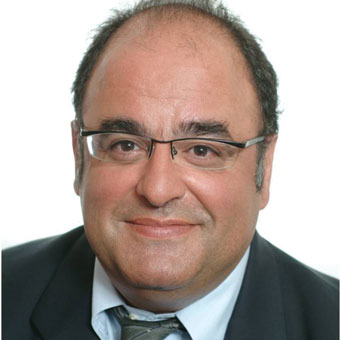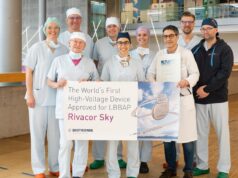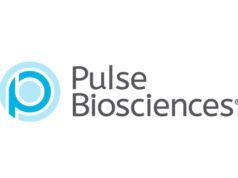
Albert Hagège (Georges Pompidou European Hospital in Paris, France), principal investigator of Vanguard, a new study exploring the safety and efficacy of vagal nerve stimulation in heart failure patients with the Equilia system (Sorin Group), explains the details of the study.
Despite efficient drugs, heart failure represents a rising problem in developed countries with an exponential increase in morbidity, mortality and costs (2% of the total healthcare expenses). Its incidence reaches 10/10,000 over 65 years, with six million heart failure patients in the USA; prevalence in Europe ranges from 10 to 20% over 70‒80 years, a 10% risk per year of cardiovascular death. Implantable cardiac defibrillators with or without cardiac resynchronisation are partly efficient but target only a minority of patients.
The autonomic nervous system plays an important role in the pathophysiology and progression of heart failure with reduced left ventricular ejection fraction, particularly after myocardial infarction, which is the primary cause of heart failure.
Decreased vagal activity, with decreased baroreflex sensitivity and heart rate variability, has been demonstrated in that setting and is linked to an increased risk of cardiac mortality. In animals, neurostimulation has been shown to reduce heart rate, restore heart rate variability and has a direct antiarrhythmic effect; it improves post-myocardial infarction survival through prevention of ventricular arrhythmias, decreases left ventricular remodelling and improves left ventricular ejection fraction, along with multiple pleiotropic beneficial effects (anti-inflammatory and anti-apoptotic, up-regulation of nicotinic receptors and normalisation of NO expression).
Those properties have paved the way to neurostimulation in heart failure patients with reduced ejection fraction, by targeting the spinal cord, the baroreceptors in the carotid artery or in the thoracic aorta, or directly the vagal nerve. Regarding vagal nerve stimulation, since the first chronic experience in man in 2008 (P Schwartz, Eur J Heart Fail 2008;10:884-91), small preliminary clinical studies have shown promising results with improved New York Heart Association (NYHA) functional class, quality of life indices, six-minute walk test duration and left ventricular ejection fraction, while adverse events were essentially related to device insertion with benign events related to the stimulation (cough, dysphonia, nausea, local pain), which all resolved spontaneously with time or after a decrease in stimulation intensity. More recently, small randomised clinical studies using different approaches and stimulation modalities did not reach all their primary efficacy endpoints, but provided valuable insights into the therapy.
With the Vanguard (Vagal nerve stimulation: safeguarding heart failure patients) study, Sorin Group opens a full clinical neurostimulation programme in heart failure, which has been first tested in vitro and in large animal models. Vanguard, the first international clinical study using the Equilia system, is currently taking place in France, Belgium, Serbia and Norway; it aims to include 20 patients in sinus rhythm with symptomatic heart failure under optimal drug regimen and left ventricular ejection fraction ≤35‒40%. The primary objective is safety (freedom from procedure or system related serious adverse events at six months), while secondary objectives include safety (at six months and yearly until 60 months; all-cause death, cardiovascular death and hospitalisations) and efficacy outcomes until 15 months (left ventricular function, heart failure biomarkers, six-minute walk test, quality of life, baroreflex sensitivity and heart rate variability). The Equilia system is a small implantable pulse generator device implanted under the skin in the patient’s chest; it delivers electrical pulses via the EquiCurl lead, a bipolar cuff electrode placed around the vagus nerve in the carotid area under general anesthesia. A unique stimulation protocol, different from the one that was recently published, is then applied and vagal nerve stimulation modality and intensity are progressively adapted to each patient over time.
Vagal nerve stimulation through the Equilia system is expected to prolong heart failure patients’ survival, improve their quality of life and reduce the number of hospital readmissions.
Albert Hagège is the principal investigator in the Vanguard study, immediate past-president of the French Society of Cardiology and Head of the Cardiology Department at the Georges Pompidou European Hospital in Paris, France









